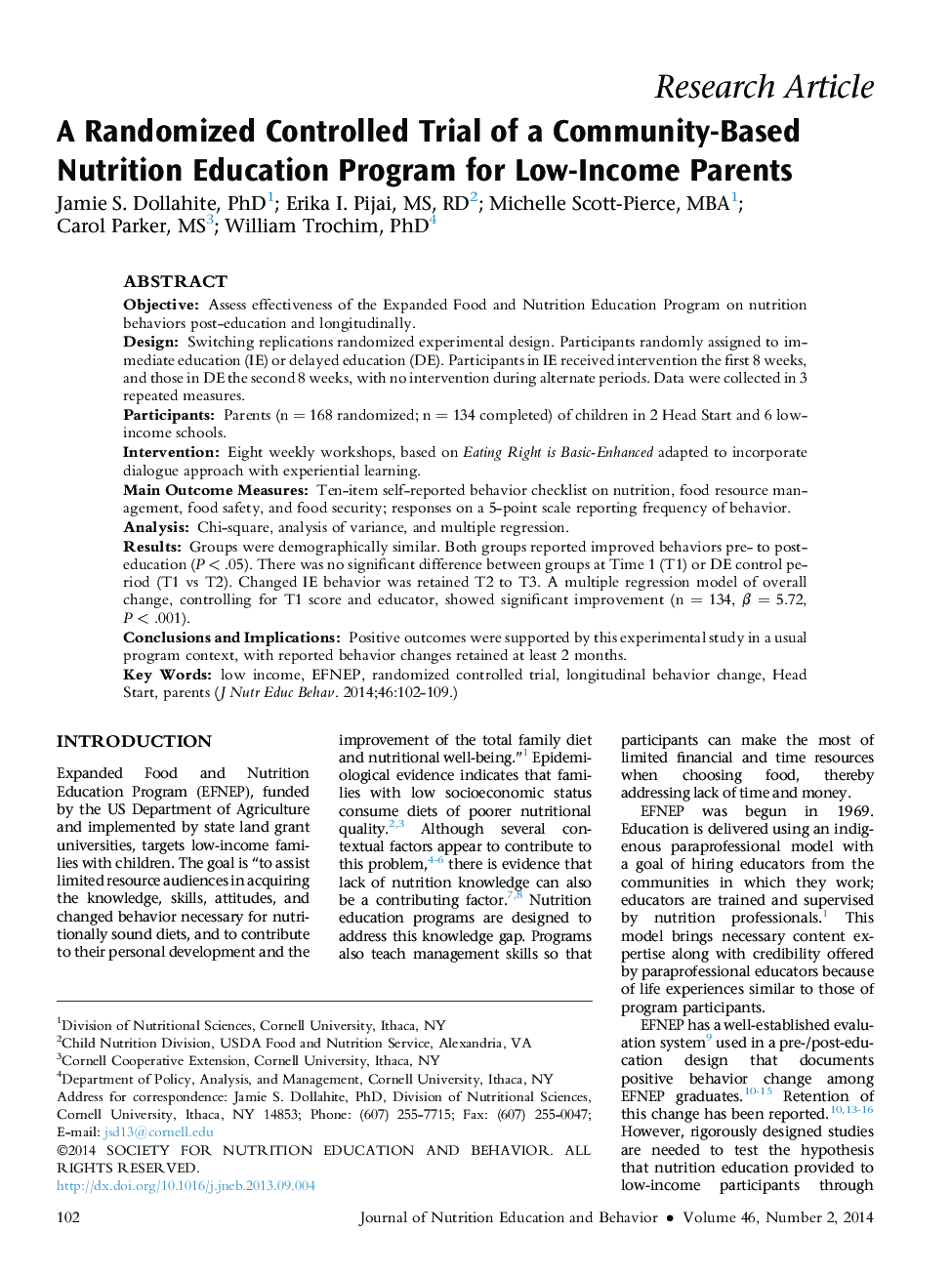| Article ID | Journal | Published Year | Pages | File Type |
|---|---|---|---|---|
| 361196 | Journal of Nutrition Education and Behavior | 2014 | 8 Pages |
ObjectiveAssess effectiveness of the Expanded Food and Nutrition Education Program on nutrition behaviors post-education and longitudinally.DesignSwitching replications randomized experimental design. Participants randomly assigned to immediate education (IE) or delayed education (DE). Participants in IE received intervention the first 8 weeks, and those in DE the second 8 weeks, with no intervention during alternate periods. Data were collected in 3 repeated measures.ParticipantsParents (n = 168 randomized; n = 134 completed) of children in 2 Head Start and 6 low-income schools.InterventionEight weekly workshops, based on Eating Right is Basic-Enhanced adapted to incorporate dialogue approach with experiential learning.Main Outcome MeasuresTen-item self-reported behavior checklist on nutrition, food resource management, food safety, and food security; responses on a 5-point scale reporting frequency of behavior.AnalysisChi-square, analysis of variance, and multiple regression.ResultsGroups were demographically similar. Both groups reported improved behaviors pre- to post-education (P < .05). There was no significant difference between groups at Time 1 (T1) or DE control period (T1 vs T2). Changed IE behavior was retained T2 to T3. A multiple regression model of overall change, controlling for T1 score and educator, showed significant improvement (n = 134, β = 5.72, P < .001).Conclusions and ImplicationsPositive outcomes were supported by this experimental study in a usual program context, with reported behavior changes retained at least 2 months.
